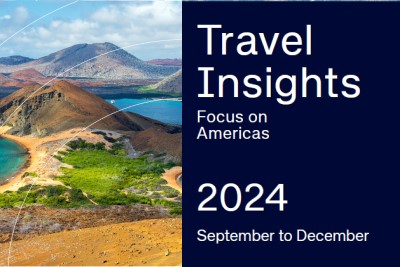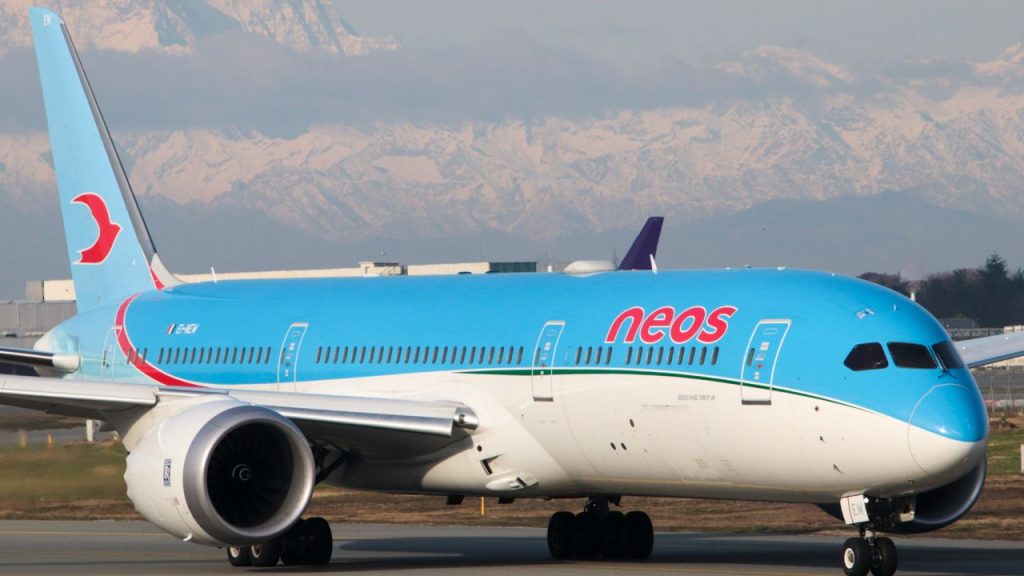The “Travel Insights September-December 2024 Americas” report from UN Tourism and Amadeus reveals robust tourism demand across the Americas, despite economic and geopolitical challenges. The region is benefiting from renewed interest from travellers, particularly for Latin America and the Caribbean, where the tourism offering is expanding to meet constantly growing international demand.
Tourism dynamics in Central America: Growing popularity

Demand in Central America remains strong, with Costa Rica and El Salvador topping the list of most popular destinations. Costa Rica, with an increase in searches of +16%, continues to consolidate its position as the destination of choice for nature tourism, while attracting travellers to less-frequented locations such as La Fortuna (+109% growth) and Palmar Sur (+55%). El Salvador also posted an impressive +25% increase in searches, signalling a growth in popularity at regional level.
The USA and Canada remain the main source markets for Central America, but the report also notes strong growth in searches from Argentina, the USA and Colombia. This trend underlines the importance of South American markets in driving intra-regional tourism flows, while improvements in air connections from South America are supporting the expansion of the region’s tourism offering.
South America in turmoil: increasing capacity and demand
Brazil, Argentina and Colombia are all recording significant increases in flight searches and bookings. Seat availability on flights to South America increased by 17% for the period September to December 2024, thanks to the addition of new routes. Destinations such as Florianopolis in Brazil (+87% growth in searches) and Cusco in Peru (+42%) illustrate the growing interest in places with a strong cultural and natural component.
South America has become a destination of choice for North American travellers, especially Americans and Canadians, as well as for emerging Asian markets, particularly China (+53% growth in searches) and Japan (+36%). Tourists from these markets are attracted to Brazilian and Peruvian destinations, particularly Rio de Janeiro, Buenos Aires and Lima, which are among the most sought-after and booked cities in the region.
Among the European countries, the United Kingdom (3rd) is leading the way with annual growth of 6%, followed by Italy (8th) with +7%. Germany, Spain and France also feature in the top 10, despite slight declines of -2%, -4% and -1% respectively, signalling a slight drop in searches for Latin America and North America. However, these European markets remain key players in international tourism to the Americas, accounting for a significant share of demand.
Diversification of tourist interest: New markets and emerging cities
The report highlights a shift in destination preferences in Latin America, with a rise in popularity of secondary cities, particularly in Costa Rica, Peru and Brazil. Regionally, some little-known destinations are gaining ground in travel searches: San Andres (Colombia, +40%), San Carlos de Bariloche (Argentina, +35%), Medellín (Colombia, +34%) and Santiago (Chile, +31%). These increases underline a shift in regional tourism, away from capital cities alone to cities offering diverse, local experiences.
In South America, travellers from Argentina recorded a 46% increase in their searches, placing the country in the top three outbound markets for the region. This growing interest from South American markets in their own destinations is stimulating investment in infrastructure and air capacity, strengthening regional connections and the attractiveness of the region.
Analysis of Key Factors and Challenges for the Years Ahead
The dynamics observed in the report reveal several important trends for tourism in Latin America. Destinations with a strong natural component, the demand for greater connectivity and the attraction of emerging locations are significant growth drivers for Central and South American countries. Although seat capacity has increased overall, it remains strategically distributed, particularly to Brazil, Argentina, Colombia and Chile, where supply has been adjusted to meet growing demand.
On reading the report, it is clear that Latin America is positioning itself as a major player in tourism in the Americas, meeting the expectations of an international public in search of authenticity, cultural diversity and unspoilt landscapes. Increased connectivity, notably via new air routes, and the renewed interest of travellers from Asia and North America are reinforcing this dynamic. With its iconic destinations and emerging cities, Latin America is now a key tourist destination.







